M.Sc. Course in Freshwater Ecology and Conservation
The institute has been running M.Sc. Course in Wildlife Science, Diploma and Certificate courses since its inception in 1986. These courses are widely acclaimed both nationally and internationally. In the similar lines the Institute is offering M.Sc. Course in Freshwater Ecology and Conservation, sponsored by the National Mission for Clean Ganga (NMCG), Ministry of Jal Shakti, Government of India, which will create a new generation of field researchers and ecologist who will be equipped to understand the nuances of the freshwater ecosystems, and their conservation management.
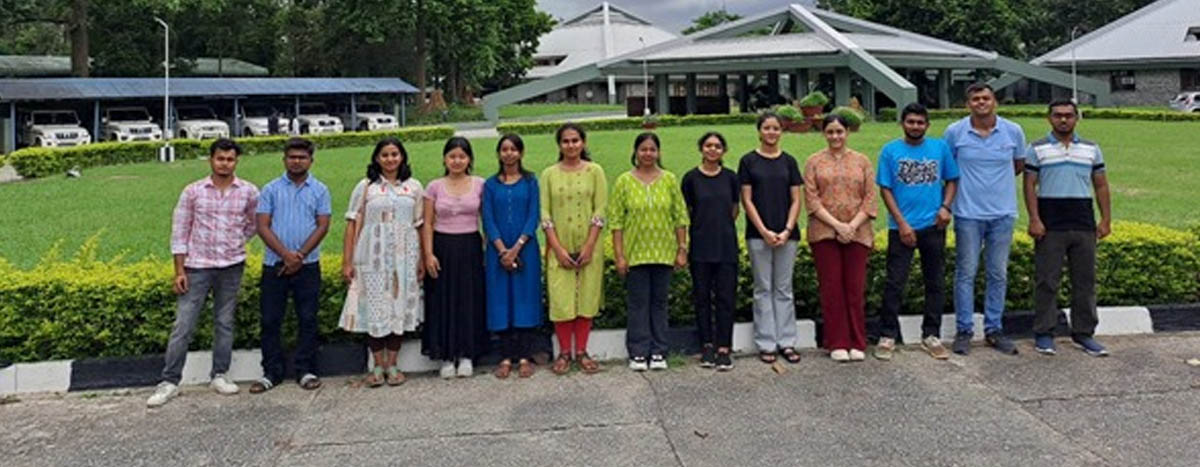
This course aims to impart theoretical knowledge on concepts, principles, approaches, analytical skills and field techniques in Freshwater Ecology and Conservation. Students of high caliber, motivation and having passion for wildlife and conservation will be selected for the two-year residential course. The course is currently affiliated with the Academy of Scientific and Innovative Research (AcSIR) and funded by the National Mission for Clean Ganga, Ministry of Jal Shakti, Government of India.
Seats and Date of Commencement
Twenty meritorious students will be admitted to this two-year residence course (four semesters). Applications are open to only Indian nationals.
The break-up of seats is :
| Category | Seats |
|---|---|
| General Candidates | 08 |
| OBC Candidates | 05 |
| SC Candidates | 03 |
| ST Candidates | 01 |
| Economically Weaker Sections (EWS) Candidates | 01 |
If OBC/SC/ST candidates secure seats on their own merit in competition with general candidates, they shall not be counted against reserved seats. A maximum of 02 seats will be offered to in-service candidates from working with Forest department, Water resource managements, Pollution Control Boards, Central Water Commission, Irrigation department, or other water management institutions and allied government departments from the general quota. If in-service candidates will not be available, these will be given to general candidates.
Course Fee and Scholarships
The Course Fee for the entire course will be borne by WII and fully sponsored for all selected 20 candidates under the financial support from the National Mission for Clean Ganga (NMCG) sponsored project.
The total cost of the course (for the year 2024-26) is Rs. 6,24,000 that includes course fees, field expenses and boarding and lodging costs. The course fee of Rs. 1,56,000/- at the beginning of the first semester will have to be deposited by the students in the form of a demand draft at the time of joining the course at WII. The fees will be carried forward as the course fee for next consecutive semesters only after successfully clearing the semester. This amount will be reimbursed to the candidate only after the successful completion of the course (award of degree). The course fee and security fee deposition will be relaxed for the Economically Weaker Sections (EWS) based on the discretion of the Institute as per Government of India rules. For any candidate who wishes to leave/drop the course before its successful completion, the deposited amount of Rs. 1,56,000/- will be forfeited.
Hostel accommodation will be provided to selected students depending on the availability.
Eligibility
- Candidates having Bachelor’s degree in Life Science (Botany, Zoology, Wildlife sciences and Forestry as one of the subjects) or allied subjects such as Veterinary Science, Agriculture, Biodiversity and Conservation Science, Sustainable Development, Biotechnology and Environmental Science from a recognized university by UGC.
- Minimum of 15 years of formal education (10+2+3).
- The minimum qualifying marks to become eligible to appear for the written examination is 55 percent in aggregate marks or 6.0 CGPA/CPI for general and OBC and 50 percent or 5.0 CGPA/CPI percent in aggregate for SC/ST candidates. Candidates who have appeared OR will be appearing for the qualifying (final) bachelor's degree examination and whose result is still awaited may also apply.
Age Limit
- Not more than 25 years as on March 30, 2024 (closing date of application) with relaxation of 3 years for OBC candidates and 5 years for SC/ST candidates.
- For the in-service candidates working with the Forest department, Water resource management, Pollution Control Board, Central Water Commission, Irrigation department, or other water management institutions and allied government departments the age limit is 40 years.
Selection Process
Eligible candidates will be required to appear for an online National Eligibility Test (NET) in any one of the 14 Centres (Thiruvananthapuram, Chennai, Hyderabad, Bengaluru, Bhopal, Mumbai, Delhi, Lucknow, Dehra Dun, Ranchi, Kolkata, Guwahati, Aizawl and Jammu). The allocation of test centres would be decided by the institute based on number of candidates registered for a particular centre and the candidate would be accordingly informed. The NET will be for 2-hours duration for 100 marks, with objective type questions at graduation level covering general aptitude, general knowledge, analytical and language skills, basic mathematical and quantitative skills, knowledge about basic biology, ecology and conservation issues (40 marks); Main subject Domain (40 marks) and an essay maximum 300 words on environmental issues, fresh water conservation or related subjects (20 marks). The regular in-service candidates having at least five years of regular work experience will be exempted from NET. Shortlisted candidates based on NET screening will be called for a Personality and Aptitude Test (PAT)/interview to be held at WII, Dehradun in May 2024. Final selection to the course will be made on the basis of combined merit of 50% marks obtained in the NET and 50% of PAT.
Students Profile
Nayana Prasannaan
 Born and
raised in Bengaluru, I cherished my time in the woods. I graduated from the University of
Agricultural Sciences Dharwad, which has a beautiful campus. Though my degree is in
Agribusiness, I developed a keen interest in ecology and conservation during my studies. This
led me to explore various master's programs in these fields. From a young age, I was fascinated
by animals and plants, watching them on television and encountering them in the fields. I wanted
to pursue a path connected to nature. Spending time by the Cauvery, I witnessed conflicts around
the river and Bengaluru's water crisis. I aim to work on balancing freshwater availability and
quality for humans and food production while conserving natural ecosystems.
Born and
raised in Bengaluru, I cherished my time in the woods. I graduated from the University of
Agricultural Sciences Dharwad, which has a beautiful campus. Though my degree is in
Agribusiness, I developed a keen interest in ecology and conservation during my studies. This
led me to explore various master's programs in these fields. From a young age, I was fascinated
by animals and plants, watching them on television and encountering them in the fields. I wanted
to pursue a path connected to nature. Spending time by the Cauvery, I witnessed conflicts around
the river and Bengaluru's water crisis. I aim to work on balancing freshwater availability and
quality for humans and food production while conserving natural ecosystems.
Priyanjali Singh
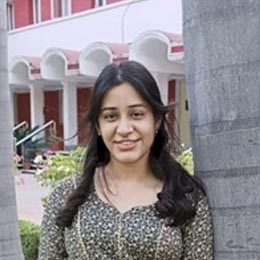 Growing up
in the Land of White Orchids - Kurseong, there was an innate connection with Nature. Wildlife
Documentaries and Bird Watching were my escape mechanism. My interest in wildlife studies
escalated when I read Jane Goodall’s “Africa in my blood”. Aquatic life and the river system
interests me the most. During my undergrad in Delhi I was fortunate enough to meet many esteemed
Wildlife Photographers and Environmentalists such as Naresh Bedi, Rajendra Singh and Aishwarya
Sridhar who sparked my passion for wildlife and inspired me to make it my career. I am motivated
to learn more about River Interlinking and conservation of aquatic life using AI tools. In my
leisure time I like to read fiction books, watching movies, bird watching and learning new
languages.
Growing up
in the Land of White Orchids - Kurseong, there was an innate connection with Nature. Wildlife
Documentaries and Bird Watching were my escape mechanism. My interest in wildlife studies
escalated when I read Jane Goodall’s “Africa in my blood”. Aquatic life and the river system
interests me the most. During my undergrad in Delhi I was fortunate enough to meet many esteemed
Wildlife Photographers and Environmentalists such as Naresh Bedi, Rajendra Singh and Aishwarya
Sridhar who sparked my passion for wildlife and inspired me to make it my career. I am motivated
to learn more about River Interlinking and conservation of aquatic life using AI tools. In my
leisure time I like to read fiction books, watching movies, bird watching and learning new
languages.
Krishi Prasad
 I hail from a
tea garden in the Dooars region of West Bengal, south of the Himalayas' foothills. Growing up
amidst lush sal forests and the river Teesta, I developed a deep love and respect for nature. I
earned my B.Sc (Hons) in Microbiology from Ramakrishna Mission Vidyamandira, where I embraced
secular scientific values. During my studies, observing the Ganges at Belur Math fostered my
passion for water conservation. My research interests include liquid waste management, water
rehabilitation, and ecological restoration policies. Besides academics, I enjoy music, writing
poems, and cooking. I aspire to work on sustainable freshwater ecology and its conservation for
humanity's benefit.
I hail from a
tea garden in the Dooars region of West Bengal, south of the Himalayas' foothills. Growing up
amidst lush sal forests and the river Teesta, I developed a deep love and respect for nature. I
earned my B.Sc (Hons) in Microbiology from Ramakrishna Mission Vidyamandira, where I embraced
secular scientific values. During my studies, observing the Ganges at Belur Math fostered my
passion for water conservation. My research interests include liquid waste management, water
rehabilitation, and ecological restoration policies. Besides academics, I enjoy music, writing
poems, and cooking. I aspire to work on sustainable freshwater ecology and its conservation for
humanity's benefit.
Yuvraj Singh Patel
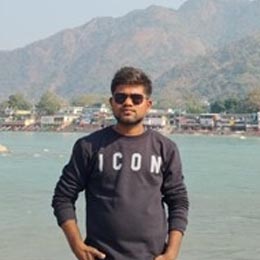 I grew
up in Orai city in Uttar Pradesh's Bundelkhand Region, captivated by nature, mountains, and
rivers since childhood. I earned a Bachelor's degree in Forestry (Hons) from Chandra Shekhar
Azad University of Agriculture and Technology, Kanpur. During my studies, I worked with the
District Forest Department (Orai) and participated in cultivating ecologically important forest
trees and medicinal plants. I volunteered in the Save Ganga Movement and Clean Ganga Mission in
Kanpur, organizing awareness programs to maintain the purity of the Ganga River. My goal is to
enhance my knowledge and skills about India's freshwater resources, their challenges,
management, and sustainable utilization. I aspire to be a freshwater ecologist and improve
India's per capita freshwater availability. Besides academics, I love playing cricket, reading
literature, and writing poems.
I grew
up in Orai city in Uttar Pradesh's Bundelkhand Region, captivated by nature, mountains, and
rivers since childhood. I earned a Bachelor's degree in Forestry (Hons) from Chandra Shekhar
Azad University of Agriculture and Technology, Kanpur. During my studies, I worked with the
District Forest Department (Orai) and participated in cultivating ecologically important forest
trees and medicinal plants. I volunteered in the Save Ganga Movement and Clean Ganga Mission in
Kanpur, organizing awareness programs to maintain the purity of the Ganga River. My goal is to
enhance my knowledge and skills about India's freshwater resources, their challenges,
management, and sustainable utilization. I aspire to be a freshwater ecologist and improve
India's per capita freshwater availability. Besides academics, I love playing cricket, reading
literature, and writing poems.
Yogesh Dansena
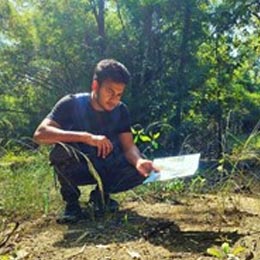 I'm from
Raigarh, a small town in chhattisgarh. I have done my graduation in Forestry, wildlife and
Environment sciences from Guru Ghasidas university. ( C.G ) . My passion for wildlife began
early, as I started watching Discovery, Nat Geo especially Bear Grylls, David Attenborough shows
which motivated me to start the beautiful journey of wildlife. And further galvanized me to
participate in Birds and butterflies surveys across central India. And I have also contributed
to the crocodile census in Kanger Valley National park. During my master’s, I aim to contribute
promising role in the freshwater Conservation. In my free time, I enjoy bird watching, sketching
and trekking.
I'm from
Raigarh, a small town in chhattisgarh. I have done my graduation in Forestry, wildlife and
Environment sciences from Guru Ghasidas university. ( C.G ) . My passion for wildlife began
early, as I started watching Discovery, Nat Geo especially Bear Grylls, David Attenborough shows
which motivated me to start the beautiful journey of wildlife. And further galvanized me to
participate in Birds and butterflies surveys across central India. And I have also contributed
to the crocodile census in Kanger Valley National park. During my master’s, I aim to contribute
promising role in the freshwater Conservation. In my free time, I enjoy bird watching, sketching
and trekking.
Nishika Yadav
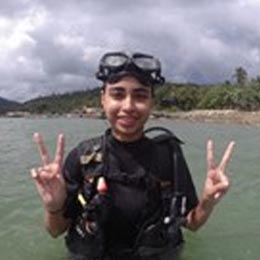 I was born
and brought up in Gurgaon, Haryana. I pursued B.Sc. Zoology Honours from Hindu college,
University of Delhi. I was involved in Jatayu (Animal welfare society) in our college and also
have a NCC 'B' certificate. Since childhood I like watching wildlife documentaries and reading
wildlife related books like those written by Jim Corbett. Apart from that I am learning French
and have a DELF B1 certificate in French. I have keen interest in otters, gangetic river
dolphins, gharials, turtles and also in corals and marine creatures. My hobbies include
running(I have completed 5 km and 10 km Marathons), playing tennis, badminton, painting and
drawing etc.
I was born
and brought up in Gurgaon, Haryana. I pursued B.Sc. Zoology Honours from Hindu college,
University of Delhi. I was involved in Jatayu (Animal welfare society) in our college and also
have a NCC 'B' certificate. Since childhood I like watching wildlife documentaries and reading
wildlife related books like those written by Jim Corbett. Apart from that I am learning French
and have a DELF B1 certificate in French. I have keen interest in otters, gangetic river
dolphins, gharials, turtles and also in corals and marine creatures. My hobbies include
running(I have completed 5 km and 10 km Marathons), playing tennis, badminton, painting and
drawing etc.
Yashi Sinha
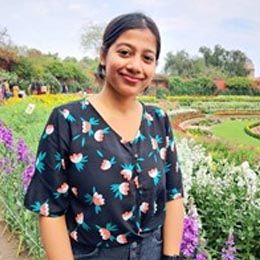 Originally from
Patna, I've lived in Delhi since childhood, finding ways to stay close to nature despite the
city's bustle. Inspired by David Attenborough's documentaries and National Geographic, I pursued
a BSc in Zoology from Zakir Husain College, IGNOU. In 2022, I took a course on bird
identification and ornithology at WWF Delhi, gaining practical training and theoretical
knowledge in bird behavior, habitat, biodiversity, ecology, and conservation. This sparked a
deep fascination with wetland avian species and ecosystems. I aim to work in conservation,
focusing on protecting freshwater and wetland ecosystems and preserving their biodiversity. In
my free time, I enjoy birdwatching, gardening, and photographing nature's wonders.
Originally from
Patna, I've lived in Delhi since childhood, finding ways to stay close to nature despite the
city's bustle. Inspired by David Attenborough's documentaries and National Geographic, I pursued
a BSc in Zoology from Zakir Husain College, IGNOU. In 2022, I took a course on bird
identification and ornithology at WWF Delhi, gaining practical training and theoretical
knowledge in bird behavior, habitat, biodiversity, ecology, and conservation. This sparked a
deep fascination with wetland avian species and ecosystems. I aim to work in conservation,
focusing on protecting freshwater and wetland ecosystems and preserving their biodiversity. In
my free time, I enjoy birdwatching, gardening, and photographing nature's wonders.
Cherie Joby
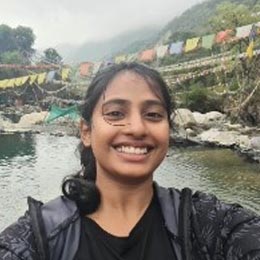 Growing up in a
nature-loving family in Kerala, my interest in ecology and wildlife was nurtured from a young
age. Surrounded by rivers, waterfalls, mountains, and beaches, I developed a deep love for
nature. During school, I participated in environmental programs and collected data on
dragonflies and damselflies, sparking my passion for ecology. Although I pursued a bachelor's
degree in physics due to a lack of ecology programs, my heart remained dedicated to the
environment. Learning about the Gadgil report and witnessing the devastating Kerala floods
underscored the importance of ecological balance. Determined to contribute to reversing
environmental damage, I aimed to join the Wildlife Institute of India (WII). Now, as a WII
student, I am excited to study freshwater systems and riparian species, striving to work
sustainably for a social cause.
Growing up in a
nature-loving family in Kerala, my interest in ecology and wildlife was nurtured from a young
age. Surrounded by rivers, waterfalls, mountains, and beaches, I developed a deep love for
nature. During school, I participated in environmental programs and collected data on
dragonflies and damselflies, sparking my passion for ecology. Although I pursued a bachelor's
degree in physics due to a lack of ecology programs, my heart remained dedicated to the
environment. Learning about the Gadgil report and witnessing the devastating Kerala floods
underscored the importance of ecological balance. Determined to contribute to reversing
environmental damage, I aimed to join the Wildlife Institute of India (WII). Now, as a WII
student, I am excited to study freshwater systems and riparian species, striving to work
sustainably for a social cause.
A Samil Mohammed
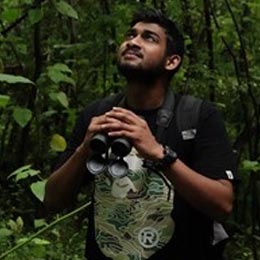 Growing up
amidst one of the biodiversity hotspots of the planet, the western ghats, I developed a deep
fascination and respect for nature from a young age. I hold an undergraduate degree in forestry
from HNBGU, Srinagar, and have participated in various conservation activities alongside my
academic pursuits.I am well aware that our generation has borne witness to the distressing
decline of various species and the devastation of precious habitats. The urgency of the
situation has instilled in me a resolute belief that we, as the current generation, hold a
crucial responsibility to make a positive impact. I find myself motivated by the idea that we
might be among the last individuals with the power to effect meaningful change.
Growing up
amidst one of the biodiversity hotspots of the planet, the western ghats, I developed a deep
fascination and respect for nature from a young age. I hold an undergraduate degree in forestry
from HNBGU, Srinagar, and have participated in various conservation activities alongside my
academic pursuits.I am well aware that our generation has borne witness to the distressing
decline of various species and the devastation of precious habitats. The urgency of the
situation has instilled in me a resolute belief that we, as the current generation, hold a
crucial responsibility to make a positive impact. I find myself motivated by the idea that we
might be among the last individuals with the power to effect meaningful change.
Smriti Sharma
Spirit of life-long conservation ethos was instilled in me by university escapades including research on herpetofauna, nature walks, field trips, paired with proximity to river Yamuna and my fondness for community outreach and conversations.
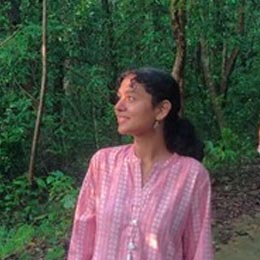
Mehul Singh Tomar
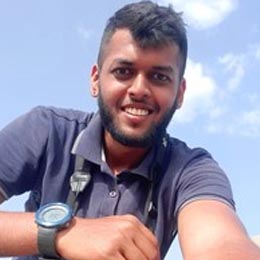 My
passion for Wildlife conservation started at a very young age when I used to go for watching
birds and dolphins in river Ganga at Narora a small town in Bulandshahr (U.P). In 2014 I got an
opportunity to work on Ex-situ conservation of freshwater turtles at Narora Atomic power
station. Thereafter, I went for my graduation in Forestry from Guru Ghasidas Vishwavidyalaya in
Chhattisgarh and I interned on multiple projects in different parts of the country on different
species like Tiger, Fishing Cat, Mugger Crocodile, Gharial. After my graduation in 2022 I have
been working as a freelance Wildlife biologist and consultant for Ex-situ conservation and
management for reptiles. In future I want to study the impact of man-made structures like
Gravity Masonry dams on the freshwater ecology.
My
passion for Wildlife conservation started at a very young age when I used to go for watching
birds and dolphins in river Ganga at Narora a small town in Bulandshahr (U.P). In 2014 I got an
opportunity to work on Ex-situ conservation of freshwater turtles at Narora Atomic power
station. Thereafter, I went for my graduation in Forestry from Guru Ghasidas Vishwavidyalaya in
Chhattisgarh and I interned on multiple projects in different parts of the country on different
species like Tiger, Fishing Cat, Mugger Crocodile, Gharial. After my graduation in 2022 I have
been working as a freelance Wildlife biologist and consultant for Ex-situ conservation and
management for reptiles. In future I want to study the impact of man-made structures like
Gravity Masonry dams on the freshwater ecology.
Esther Lalhmingmawi Hmar
 Originally from
Mizoram, I grew up in Shillong, a biodiversity-rich region that fueled my love for wildlife and
ecology. My passion for life sciences led me to actively participate in seminars, competitions,
bird counts, and conservation activities. I completed my BSc (Hons) in Zoology from St. Edmund’s
College in Shillong. A defining moment during my BSc was a project on frogs, resulting in the
discovery of Minervarya asmati, a state record for Meghalaya. This achievement reinforced my
commitment to ecological research and conservation. I am eager to make a meaningful impact in
this field. Besides academics, I enjoy music, fine arts, and watching movies.
Originally from
Mizoram, I grew up in Shillong, a biodiversity-rich region that fueled my love for wildlife and
ecology. My passion for life sciences led me to actively participate in seminars, competitions,
bird counts, and conservation activities. I completed my BSc (Hons) in Zoology from St. Edmund’s
College in Shillong. A defining moment during my BSc was a project on frogs, resulting in the
discovery of Minervarya asmati, a state record for Meghalaya. This achievement reinforced my
commitment to ecological research and conservation. I am eager to make a meaningful impact in
this field. Besides academics, I enjoy music, fine arts, and watching movies.
Shraddha Sarkate
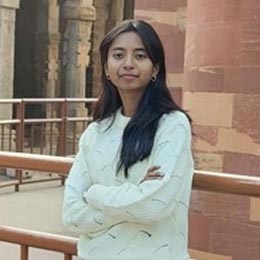 My name is
Shraddha Sarkate, from Washim, Maharashtra, where vibrant landscapes of fields and forests have
been my playground since childhood. My early experiences with the diverse flora and fauna around
me nurtured a profound love for nature. I pursued my undergraduate studies at the College of
Forestry, Dr. Panjabrao Deshmukh Krishi Vidyapeeth, focusing on forest ecosystems and
sustainable management. This academic pursuit strengthened my resolve to contribute to
environmental conservation. Currently, I am expanding my knowledge in freshwater ecology and
conservation, studying the impact of human activities on aquatic ecosystems and devising
strategies for sustainable water resource management. I am particularly drawn to riverine
ecosystems. Beyond academics, I enjoy music, poetry, and photography. My ultimate goal is to
work towards the sustainable development and conservation of freshwater ecosystems for the
benefit of nature and humanity.
My name is
Shraddha Sarkate, from Washim, Maharashtra, where vibrant landscapes of fields and forests have
been my playground since childhood. My early experiences with the diverse flora and fauna around
me nurtured a profound love for nature. I pursued my undergraduate studies at the College of
Forestry, Dr. Panjabrao Deshmukh Krishi Vidyapeeth, focusing on forest ecosystems and
sustainable management. This academic pursuit strengthened my resolve to contribute to
environmental conservation. Currently, I am expanding my knowledge in freshwater ecology and
conservation, studying the impact of human activities on aquatic ecosystems and devising
strategies for sustainable water resource management. I am particularly drawn to riverine
ecosystems. Beyond academics, I enjoy music, poetry, and photography. My ultimate goal is to
work towards the sustainable development and conservation of freshwater ecosystems for the
benefit of nature and humanity.
Prateeti Bhushona Bora
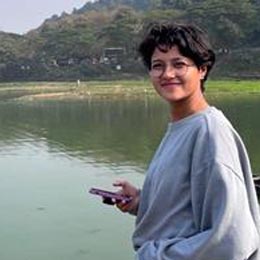 Growing up in a small
village in Jorhat district, Assam, by the Brahmaputra River, I developed a deep appreciation for
nature and a curiosity about wetlands and wildlife. My BSc in Botany further fueled my passion
for ecological sciences, leading me to a career in sustainability and wildlife preservation.
After graduation, I worked as a Project Assistant with Sustainability and Green Initiative (SGI)
in Molai Forest, under the guidance of Padma Shri Jadav Payeng, gaining valuable experience in
forest landscape restoration. The rapid loss of wildlife and natural landscapes concerns me
deeply. I am committed to advancing my knowledge and expertise in conservation and restoration,
focusing on revitalizing freshwater ecosystems, often called "earth’s kidneys."
Growing up in a small
village in Jorhat district, Assam, by the Brahmaputra River, I developed a deep appreciation for
nature and a curiosity about wetlands and wildlife. My BSc in Botany further fueled my passion
for ecological sciences, leading me to a career in sustainability and wildlife preservation.
After graduation, I worked as a Project Assistant with Sustainability and Green Initiative (SGI)
in Molai Forest, under the guidance of Padma Shri Jadav Payeng, gaining valuable experience in
forest landscape restoration. The rapid loss of wildlife and natural landscapes concerns me
deeply. I am committed to advancing my knowledge and expertise in conservation and restoration,
focusing on revitalizing freshwater ecosystems, often called "earth’s kidneys."
For more information about two year "M.Sc. Course in Freshwater Ecology and Conservation"